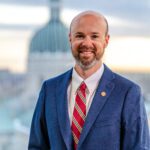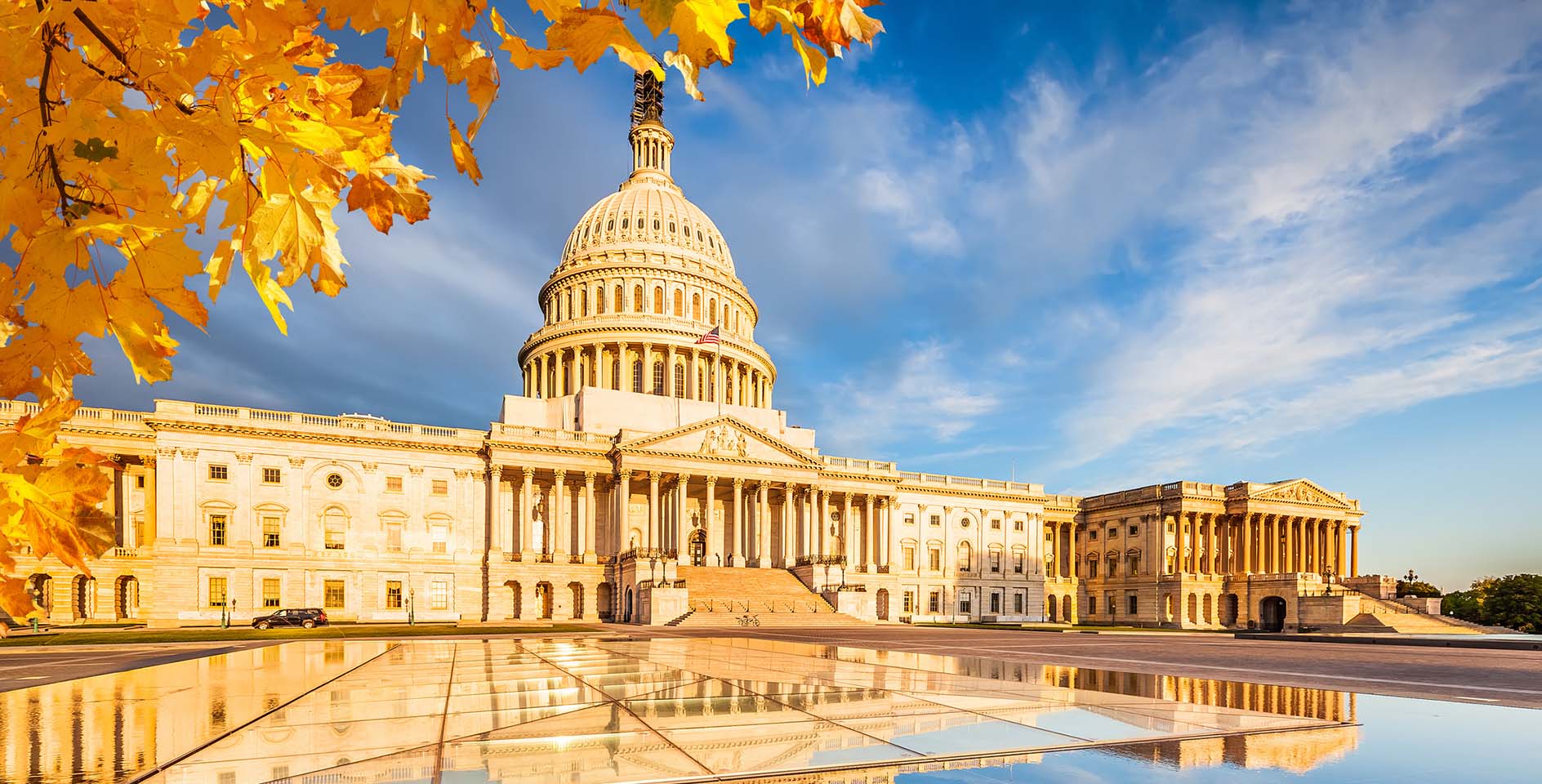While themes related to religious liberty appear in early Christian writings, it was not a principle the Christian Church prioritized throughout its early history. With Christianity in charge and wedded to the state, it did not have to think about its liberty. What happened that disrupted church-state alliances and made Christianity re-evaluate its positions on the relationship between church and state? The Reformation happened.
It is not an exaggeration to argue that the religious liberty we enjoy as American Christians, a form of religious liberty that makes church-state alliances seem entirely foreign, was forged in the aftermath of the Reformation. Why? Because theological principles inherent to religious liberty were at the center of the Reformation itself.
But even the birth of religious liberty stemming from the Reformation has a sordid history. As confessional evangelicals, we write as ardent supporters of the Protestant Reformation, but intellectual honesty requires admitting that the Magisterial Reformers were not always practitioners of their own principles. The Reformers, like all of us, were captive to their time. On religious liberty especially, their theology was often more principled than its application in practical matters of church and state. Though long since passed, the Reformers still speak today through their legacy of faith. Since they are members of the great cloud of witnesses (Heb. 12:1-2), we would do well to consider and reflect upon the principles of Reformation theology in relationship to religious liberty, whether positive or negative.
As we celebrate the 500th anniversary of the Reformation in hopes of retrieving and invigorating Protestant theology, it is good and necessary to examine how themes in Reformation theology supply religious liberty with needed sustenance.
The Reformers’ insistence upon the supreme authority of Scripture alone — sola scriptura — is foundational to religious liberty.
Scripture cannot be the supreme authority in matters of faith and practice if we neglect to understand the ways in which God has clearly defined the realm of the state's authority. In Scripture, the purpose, authority, and jurisdiction of the state is ordained and limited, meaning that the state plays a positive role in society, but that it does not play every role or possess every type of authority. A pattern emerges from Scripture revealing that the state is not designed to exercise spiritual authority. The state exists to maintain the stability of society through the maintenance of natural law and statutory law (Gen. 8:20-9:17; Rom. 13:1-7). Likewise, the church is ill-equipped to bear the responsibility of civic authority. This duality of jurisdictions is a pivotal and Scriptural foundation to religious liberty because it demarcates the authority of the state over civil matters and the authority of the church over ecclesial matters.
The Reformers’ insistence upon the supreme authority of Scripture alone — Sola Scriptura — is foundational to religious liberty.
Luther’s understanding of justification by faith alone necessarily excludes justification by a state-coerced faith. The nature of authentic faith — sola fide — reveals the inner logic of belief in the gospel.
The Reformers rejected the notion of there being any earthly mediator between a person and God. Each individual stands before the judgment of God in need of a Savior, and Jesus Christ is the sole mediator of salvation. An evangelical account of religious liberty relies upon a doctrine of justification by faith alone, insisting that individuals enter God’s Kingdom individually and conscientiously self-aware of an expressed faith. No one can attain someone else’s salvation for them, and neither can someone’s salvation be negated by another. Faith is grounded in a personal recognition of the conscience’s guilt and personal need for redemption. Thus, the Kingdom of God is received by faith and not by external factors. This entails a rejection of the state declaring the bounds of faithful membership in the church since it lacks the mediatory authority to declare or accomplish salvation. Lastly, true faith by definition is authentic faith. Individuals are recipients of salvation in Christ by a free, uncoerced response to the gospel.
The Reformers’ understanding of human sinfulness provides insight into the blessings and limits of government authority.
Luther believed that “our whole nature is condemned and destroyed by sin and cannot emerge from this calamity and death by its own powers or efforts.” (LW 12:339) If the heart of humanity is deceitfully wicked above all else by nature, then a government formed amongst depraved persons can either be a blessing to its people or an instrument of Satan; it can restrain itself, thus yielding to higher powers than itself, or it can act tyrannically where no authority exists apart from that which the state dispenses. The state is not omnicompetent, but is marked by sinful rejection of God’s Word, despite its beneficial role in society to protect citizens and punish evildoers. When evil is restrained by the government, the people are blessed. When evil is promoted by the government, the people are oppressed. A thorough understanding of the reformers’ belief in the depravity of man curbs triumphalist visions of government’s competence. A Christian doctrine of religious liberty assumes a restrained vision for the state in order to protect the faculty of conscience among citizens. Only a state aware of its own fallibility can commit itself to preserving and safeguarding fallible opinions.
Calvin’s understanding of divine sovereignty demands that God be regarded as the only Lord of the conscience.
When Calvin commented on Jesus’ instruction to his disciples regarding their obligation to “render to Caesar the things that belong to Caesar, and to God the things that belong to God,” he noted the rightful though subordinate authority of the government — that government has a limited, rather that totalizing, jurisdiction. When the “princes and magistrates” ruled righteously, it was the Christian’s duty to submit to their authority. However, when government attempted to rob God of the authority over the consciences of man, Calvin declared, “we ought not to obey them any farther than can be done without offending God.” Standing in apostolic tradition, to regard the government as having supreme authority over the conscience is to dishonor the sovereignty of the Creator over his creation and the kingship of Jesus Christ (Acts 4:12; Acts 5:29). Calvin was right to conclude that “we must attend to the distinction between the spiritual kingdom of God and political order” so as not to forget that “the Lord wishes to be the only Lawgiver for governing souls.”
Luther’s teaching regarding two distinct realms of authority undergirds modern understandings of religious liberty.
Though practiced imperfectly by Luther himself, the “Two Kingdoms” doctrine is helpful for understanding the simultaneity of God’s rule: Christ rules as Creator over the creation and the state, and Christ rules as Savior over His church. God rules over both, but His rule has different implications for each domain. Clear delineation prevents either from encroaching on the other’s domain. Luther asserted that mixing the distinct authorities of church and the state was a work of Satan himself. In a his comments on Psalm 101, Luther wrote, “The devil never stops cooking and brewing these two kingdoms into each other. In the devil’s name the secular leaders always want to be Christ’s masters and teach Him how He should run His church and spiritual government. Similarly, the false clerics and schismatic spirits always want to be the masters, though not in God’s name, and to teach people how to organize the secular government. Thus the devil is indeed very busy on both sides, and he has much to do. May God hinder him, amen, if we deserve it!” (LW 13:194-195) Indeed, may God hinder the work of the Devil in his attempt to disrupt religious liberty by confusing the territories of the kingdom of God and the kingdom of man.
The Reformers understood that it was only by grace alone — sola gratia — that a sinner could be transformed. The grace of God, not government, was the hope of true spiritual reformation.
If the transformation of the sinner could come through good government instead of grace, then Christ died in vain. Good government, whether from self or civic authority, is ultimately powerless to change a sinner’s heart. Luther’s attempts at self-government failed miserably to bring relief to his guilty conscience. For Luther, life apart from the grace of God was a living hell. Yet, it was by grace, and grace alone, that Luther’s life changed forever. The faith that led to justification was a gift of the grace of God, not government policy. As advocates of religious liberty, Christians must remember that it is God’s grace in Christ that brings about salvation. Harsh restrictions may make for a good outward show (Col. 2:22-23), but “they have no value in stopping the indulgence of the flesh.” This is true whether those restrictions apply to one’s personal discipline or civic policies. Government may be able to limit certain action, but it is incapable of granting the New Birth (John 3:8).
Calvin’s understanding of the work of the Holy Spirit reinforces the spiritual nature of religion as a whole.
Calvin believed the Holy Spirit must unite the believer to Christ in order for the blessings of salvation to be realized. He wrote, “As long as Christ remains outside of us, and we are separated from him, all that he has suffered and done for the salvation of the human race remains useless and of no value to us” (Inst. 3.1.1). Given the spiritual nature of Christianity, one must assume that it is dependent upon the Holy Spirit for its resource, not the civic government. When Calvin was commenting on Zechariah 4:6, he noted the spiritual means by which God builds up the Church. Concerning the phrase, “not by might nor by power, but by my Spirit, says the LORD of hosts,” Calvin wrote: “But God intended also to show that his Church is built up and preserved, not by human and common means, but by means extraordinary and beyond all our hopes and all our thoughts.” He continued, “When therefore we now see things in a despairing condition, let this vision come to our minds — that God is sufficiently able by his own power to help us, when there is no aid for from any other; for his Spirit will be to us for lamps, for pourers, and for olive-trees, so that experience will at length show that we have been preserved in a wonderful manner by his hand alone.” The necessity of the Holy Spirit’s work in the building of the Church precludes the need for government policies that attempt to coerce faith. The Church’s greatest need is met by the Holy Spirit, not the government.
Calvin’s argument for the freedom of the believer’s conscience further explains the primacy of humanity’s relationship to God before government.
When Calvin discussed the freedom of the believer’s conscience, he distinguished the role of God from the role of the government. The conscience, which for Calvin referred to a “sense of divine judgment, as a witness joined to them” (Inst. 3.19.15), was to be shaped by God’s truth. As the believer grew in their understanding of God, their conscience was formed accordingly. Since the government at times could reflect the general character of God through judgment on wickedness and support of righteousness, the conscience of the believer might be partially informed by a government’s policies and actions. This, however, was not the primary means by which the believer’s free conscience was to be formed. For Calvin, God was the ultimate shaper of the human conscience. The righteousness of a God-ordained magistrate was limited because of the fallibility of its leaders and citizens. Thus, the laws of a government serve as a shadow of the righteousness of God, but they should never be equated with the infallible substance of that righteousness.
The Reformers’ confidence in the steadfastness of God’s truth means that competing worldviews within in the public square pose no threat to biblical churches/Christianity.
When Luther penned his great hymn, “A Mighty Fortress is Our God,” he had already witnessed the unshakeable nature of God’s truth. Though enemies of the gospel threatened to undo him, Luther refused to fear because God had willed for the truth to triumph over all opposition. The battle was not against those who were held captive by the Devil. The battle was against the Prince of Darkness, and the weapon of warfare was the gospel. The battle would not be won by taking aim at a culture permeated with Roman Catholicism. The battle would be won through the transformation of the consciences of the people. Sadly, it seems as though some Christians have forgotten that culture is not transformed through a focus on the culture itself. The truth that endures forever engages the hearts of individuals. Furthermore, the truth is not threatened by competing claims. If there was ever a time when the gospel was threatened by competing claims, it was during the Reformation. Religious and political opposition rallied against Luther’s message, but the truth could not be put away. Reformation, then and now, depends upon a renewed understanding of God’s enduring will to see His truth transform the lives of individuals. Political and social kingdoms within the culture will come and go, but Christ’s kingdom is forever.
The latter day failures of Luther and Calvin to consistently apply their theology after receiving more political authority serves as a clear warning about the danger of wedding the church to the state.
When we assess the past, we must be careful not to idealize heros of the faith. If Luther and Calvin’s theology taught us anything, it taught us that mankind is sinful and in need of God’s grace. As Luther reminds us, all believers on this side of eternity are simul iustus et peccator, that is, “at once just and sinner.” Luther and Calvin would not have wanted future readers to neglect their flaws and failures. So, while these two reformers provide a tremendous theological framework for religious liberty, they also remind us that good theology does not necessarily result in good practice. At times, Luther and Calvin were harsh critics and even persecutors of those with differing beliefs, Calvin going so far as encouraging the barbaric execution of Michael Servetus by flame. Calvin’s comments on the role of the government to establish and “prevent the true religion which is contained in God’s law from being openly and with public sacrilege violated and defiled with impunity” (Inst. 4.20.3) should be rejected unequivocally. Not only is such a statement unbiblical, but it has proven disastrous from the beginning of Christendom.
The Baptist concept of the free church as a voluntary society is critical to the reformational principle of Semper Reformanda.
As Baptists, we owe our inheritance to Reformational ancestors whose concept of the church as free and voluntary unshackled it from an ungodly union with the state and emphasized the purity, discipline, and regenerate nature of Christ’s church. Where medieval Christendom treated membership in the church and membership in the state as one and the same, the prospect of a voluntary church consisting only of those with expressed faith in Jesus Christ made possible the critical division necessary to identify the church as something distinct from the world around it. A flourishing church is a church that understands its distinctiveness. A free church operating in a free state allows the church to pursue its mission of evangelization and disciple-making. A free church model made up only of those with professed faith in Christ is possible when government does not see the church as a useful appendage to enforce cultural, religious, or political conformity. The church in every age must be attentive to its surroundings in order to keep alive the spirit of the Reformation — “Reformed and always reforming.”
The Reformation’s emphasis on the supremacy of Christ Alone — solus christus —is the ultimate foundation for a truly Christian understanding of religious liberty.
Because Jesus Christ is the ultimate Lord over the conscience, a Christian understanding of religious liberty begins with affirming that Christ alone possesses the ability to execute judgment over the conscience (Acts 17:30-31). Because Christ possesses the exclusive right and authority to judge erring consciences, the institutions of creation (family, church, state) do not. Religious liberty exists because of the forbearance of God’s coming judgment. Whatever other themes comprise religious liberty (dual jurisdictions, the conscience, voluntary faith, etc.), all of these find their meaning in reference to the Lordship of Jesus Christ as the appointed judge over man (John 5:22; Heb. 9:27).
Religious liberty was forged through the Reformation’s fracturing of Christendom.
The legacy of Christendom’s impact on Christian witness and society is mixed. On the one hand, Christians can appreciate Christian morality being the dominant morality in society for the good of human flourishing. On the other hand, an unregenerate Christianity resulting from church-state alliances that fostered political and religious unity is a trade-off that confessional Christianity cannot accept. The idea of Christian social dominance accomplished through church-state alliances and, in some cases, even coercion, has proven to be one of the most catastrophic effects undermining authentic Christian witness. By confusing membership in the state with membership in the church, historic church-state models seen in Christendom resulted in unregenerate churches and a Christian nominalism that easily acquiesced to a state of secular unbelief that we see in Europe today. Christendom did not forge an authentic Christianity for its recipients to look nostalgically back upon; it forged a once-and-former cultural hegemony that is now in ruins.
Christians live in a penultimate age, meaning an age where Christ’s rule is not yet fully present. This means it is normal and expected to encounter a culture where religions and ideology vie and compete for acceptance. We do not live in a naked public square that is solely secular or anti-religious, nor a religious public square where one religion or one denomination has all the cultural power. Rather, Christians understand themselves to be pilgrims living as resident aliens amid a contested public square where our confidence in the gospel—apart from the backing of state or cultural privilege—is the basis of our identity.
It is reasonable for Christians to accept or prefer the imperfections of liberal democracy over the supposed cultural uniformity of medieval Christendom that not only confused church and state relationships, but executed dissenting consciences often in the perverse attempts to further Christianity.
The Reformational focus on the Glory of God alone — “Soli Deo Gloria” — is critical to religious liberty and animates Christian cultural activity.
Whether eating or drinking, the Bible is explicit that Christians are to do everything for the glory of God (1 Cor. 10:31). From economics to scientific advancement, the Reformers’ vision for all of life lived under the canopy of God’s rule and the advancement of God’s glory was the catalyzing force behind so much cultural innovation that followed from the Reformation. Yet, the obligation to pursue God’s glory in all spheres of culture requires the exercise of Christian freedom. Christians care about religious liberty since the Bible draws a relationship between our freedom to live faithfully and the extension of God’s glory throughout our pilgrimage on this earth.











